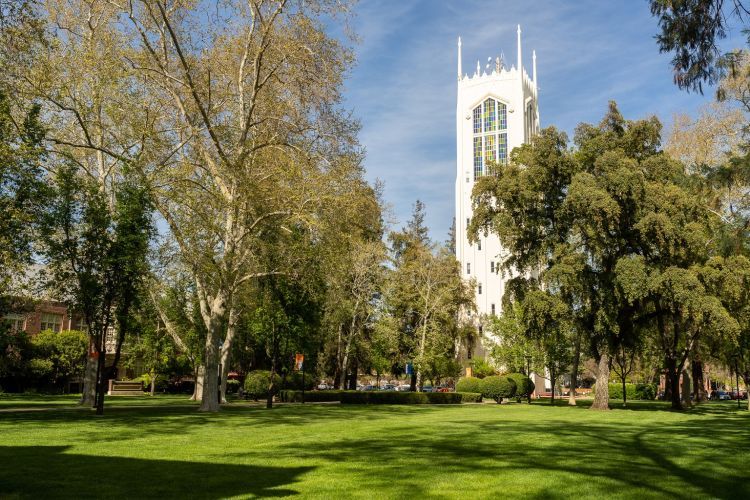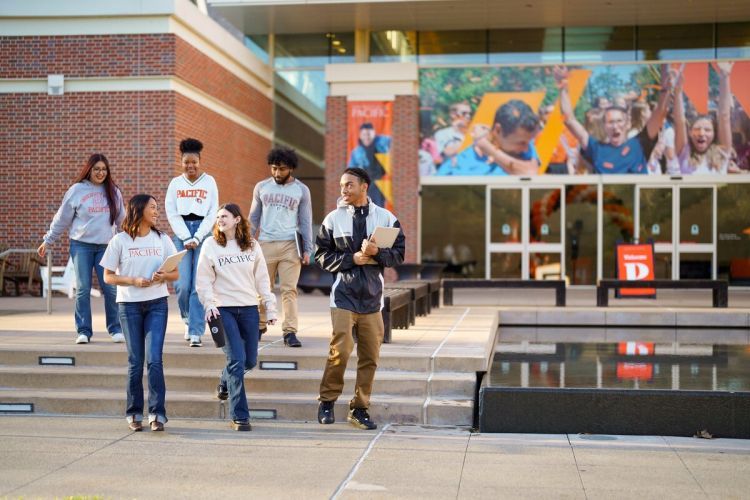Breadcrumb
Pacific to include environmental considerations in investment strategy

University of the Pacific is taking measures to combat climate change by considering environmental factors in the university’s investment portfolio.
The Board of Regents agreed to several measures, including establishing a working group comprised of students, staff, faculty and investment advisors to discuss and understand the opportunities and challenges related to environmental concerns in a large, diverse portfolio and partially divesting from fossil fuels, among other initiatives. The first step will be to begin to remove direct investments from companies associated with thermal coal and tar sands—among the worst contributors to pollution.
“We want to be good global citizens and do our part to help the planet,” said Regent Evan Dreyfuss ’86, chair of the Board of Regents’ investment committee. “Pacific is going to outlive all of us, so we have to figure out: how do we make sure that we are sustainable?”
The university currently has 7.6% of its $570 million endowment invested in the energy sector. Pacific is working closely with investment firm Cambridge Associates to identify which funds to divest from and explore options for clean energy investments.
“We want to start by targeting investments that are easy to divest from and will have the most impact,” said Chief Financial Officer James Walsh. “We want to make sure we are balancing the needs of the environment while also being good stewards of the endowment for our students.”
The endowment is used to support various academic programs and student scholarships. The university distributed $18.9 million in 2022, supporting nearly 1,200 students with scholarships, as well as instructional, academic and student activities.
A working group of faculty, students and other stakeholders will be assembled to weigh in on the university’s plans and keep the campus community informed.
ASuop, the university’s student government, advocated for an environmental investment plan for two years and were partners with university leaders and the Regents in developing the plan.
“For someone like myself who is really passionate about the environment and finding ways we can be more sustainable, I am really happy we are making this move,” said fourth-year student Marissa Gandolof-Gillaspy ’23, a member of ASuop’s sustainability committee. “It’s in the right direction and it’s being talked about and students are getting more knowledgeable.”
A dashboard will be created to communicate future plans to the campus community. Pacific also will explore what it means to become a signatory on the United Nations’ Principles for Responsible Investment.
Pacific hopes to use the experience as a learning opportunity for students.
“We have a student investment fund (and) we have engineering students who could chime in on different solutions, so this could also be very beneficial from a teaching standpoint,” Dreyfuss said.
Pacific becomes only the sixth private university in California to have an environmental plan for investments, joining University of Southern California, Loyola Marymount University, Pitzer College, California Institute of the Arts and Stanford University, according to BestColleges.com.
Other sustainability initiatives at Pacific include solar arrays that generate 30% of the energy on the Stockton Campus; sustainable food and dining practices ranked in the top 10 on college campuses; No. 2 in the nation for the percentage of campus-owned vehicles that are 100% electric and using 100% non-potable water to irrigate the Stockton Campus.





